By: Godfrey Okoth MA & Arthur Magero MA
“Shalom-SCCRR has opened a space for our people to discuss the causes of conflict and explore strategies for prevention, management, and transformation. Of great importance is Shalom-SCCRR’s approach of bringing the local people together to be at the center of the peace process and their own development. This has tremendously increased local ownership and the sense of inter-ethnic co-existence and shared development. We thank you and we promise our commitment to protecting the peace that you have guided us to work so hard for,” Commented Mr. Joseph Letting, A Community Facilitator from Kapkitony, Nandi County.
‘‘To replace the old paradigm of war with a new paradigm of waging peace, we must be pioneers who can push the boundaries of human understanding. We must be doctors who can cure the virus of violence.” Paul Chappell.
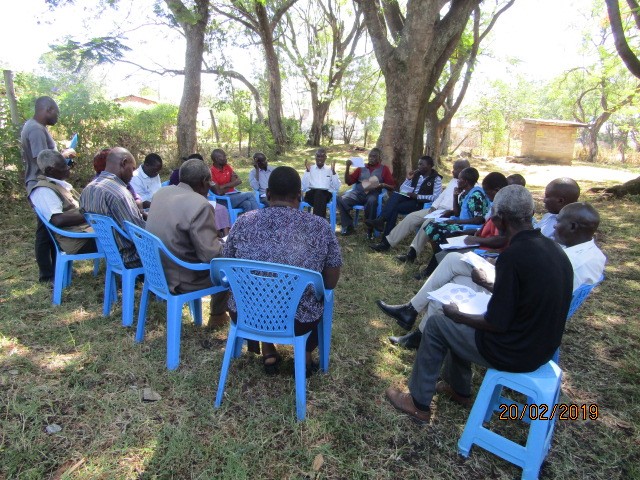
Shalom-SCCRR’s intervention in Kisumu-Nandi borderline dates back to 2017. Prior to this, the borderline had been grappling with severe effects of post-election violence which were often accompanied by numerous human deaths, injuries, maiming, families being left homeless and displaced and the economic mainstay of the people destroyed as livelihood supporting massive sugarcane plantations went up in flames.
In a bid to clarify the narrative that political activities are the ultimate cause of conflict along the Kisumu-Nandi border, the community validated conflict analysis that was guided by Shalom-SCCRR in 2018, established that landlessness and the ensuing poverty seemed to be the greatest underlying factors. Landlessness and poverty have been exacerbated by years of institutional neglect in the form of minimal state interventions and lack of adequate socio-economic infrastructure. Such institutional gaps have motivated actions such as cattle theft, invasion of people’s private farms, and frequent attacks on settled community members as a way of scaring them to migrate from their current places of residence. Contested land ownership and historical enmity has further cemented the contestation over boundaries of administrative units; a situation which has made it easy to use politics as a basis for inciting and triggering interethnic violence, especially during electioneering periods.
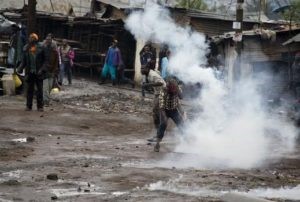
On the onset of Shalom’s intervention, there were all indications that such an intervention was more than ever necessary for a region that had suffered from the wounds of interethnic conflict for ages without any significant purpose driven intervention. The BBC through its African editor Fergal Keane, upon their visit to Shalom-SCCRR offices in Nairobi to consult on the state of Kenya’s 2017 general elections confirmed the need for the Shalom’s interventions at such a time, “Kenya needs them in its slums and beleaguered western villages where tension is rising by the day. What they do here matters to all of Africa…”
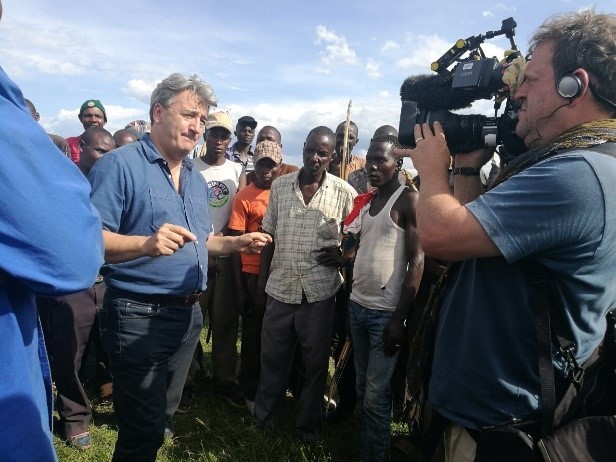
Established and strengthened local institutions for collective action
Since the onset of Shalom-SCCRR intervention, the team of experts have employed great skill and energies in establishing groups of community leaders whom through training have improved a great deal in their peacebuilding skills. Shalom-SCCRR involvement of local communities, duty bearers and local peace and development actors has led to the establishment of two separate groups of consistent members from Kisumu and Nandi counties. In addition to the 2 groups, we have been successful in establishing a locally constituted joint peace committee of 10 members with equal representation from both the Luo and Nandi communities.
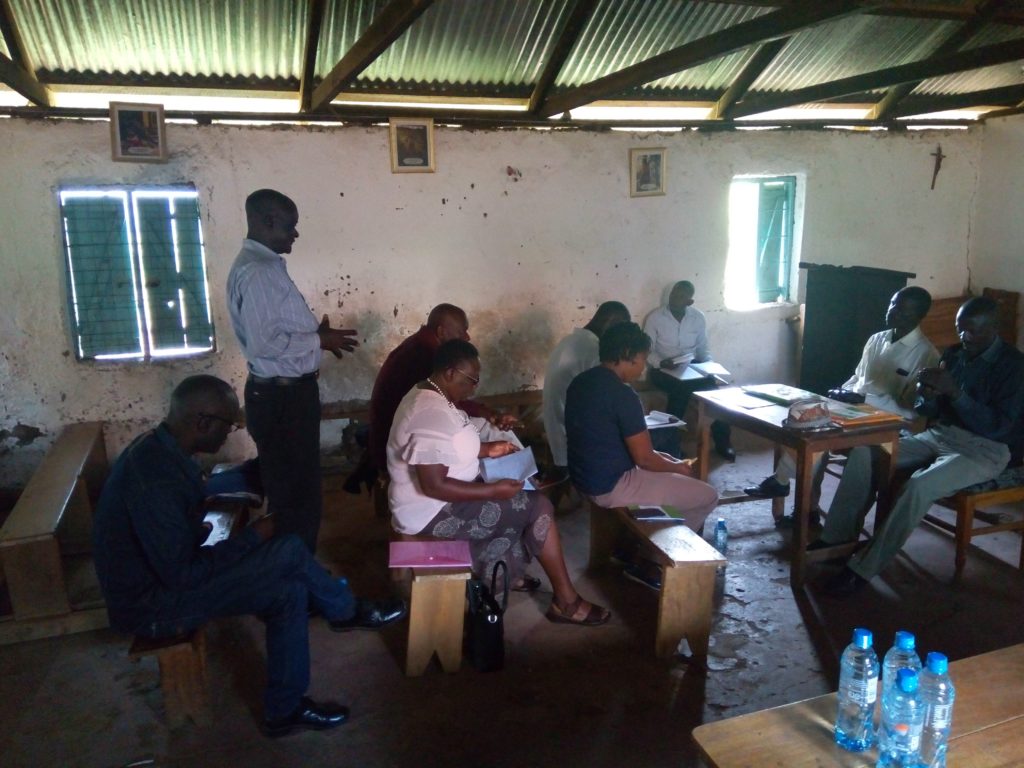
Undeniably, Shalom-SCCRR has established a strong foundation for conflict intervention along Kisumu –Nandi borderline. Mzee Choge, a village elder and the Animator of Tinderet Peacebuilding group confirms, “The skills coupled with the opportunity that we now have of working together through two well-established groups have enabled us to be on the forefront in mobilizing communities on both sides of the ethnic divide for joint reconciliation and problem solving initiatives.”
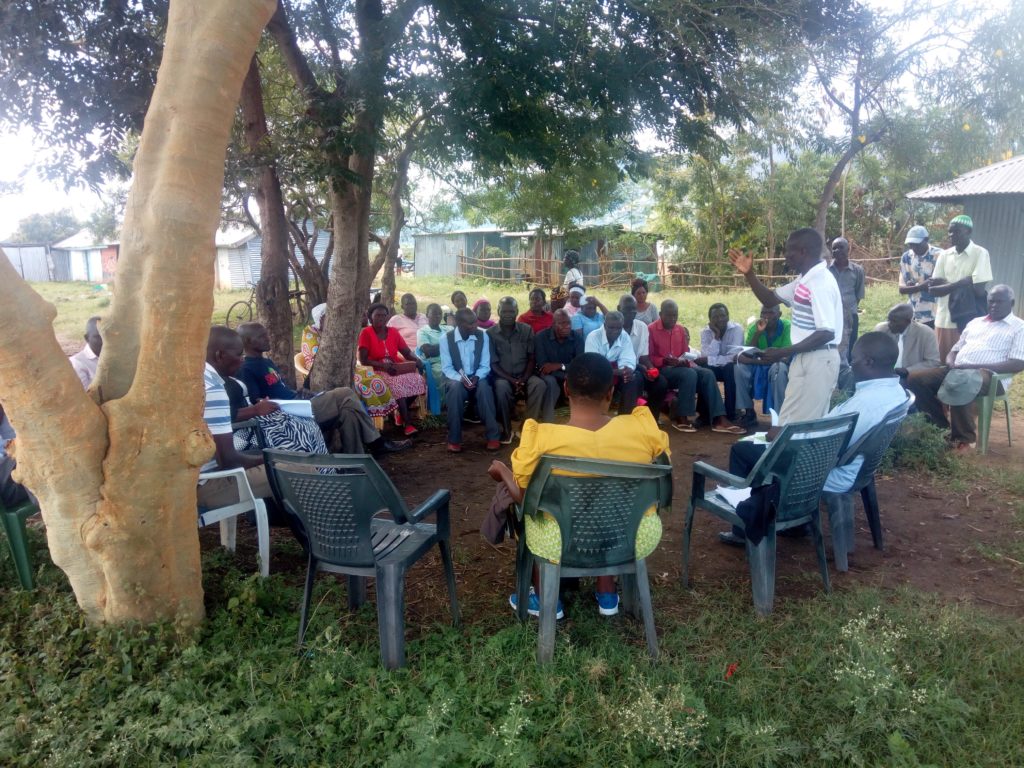
Reduced Threats of Violence
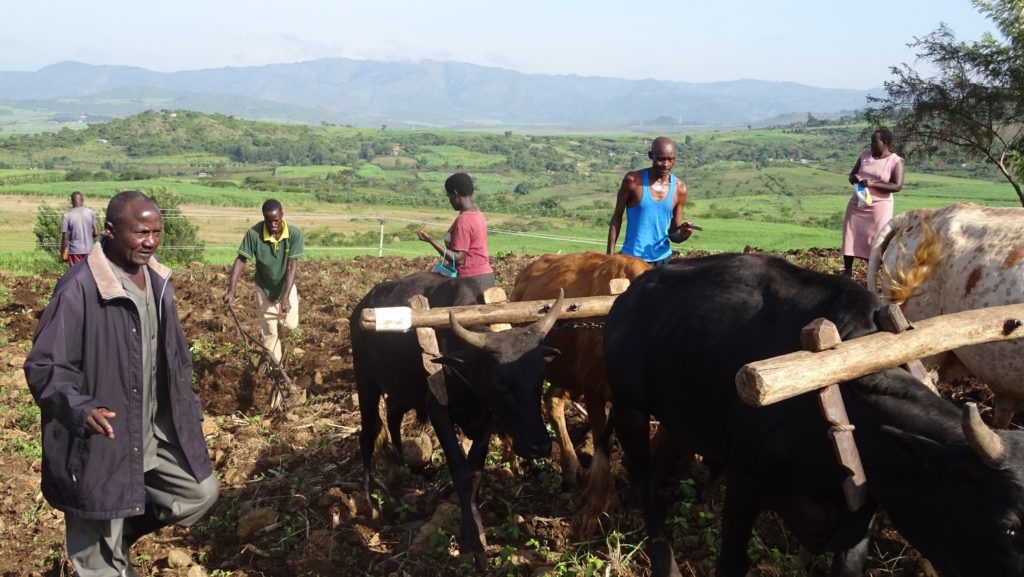
“The significant reduction in the threat of electoral violence is one aspect that stands out as a major achievement of our communication across the border. Constant training accompanied by closely guided practical sessions in conflict management and transformation activities with our communities have enabled us to develop high level understanding of the underlying causes of the conflicts here and the most appropriate intervention mechanisms” Observes Thomas Otiato, a Community elder from Kopere, Muhoroni Sub-county.
Collaboration with Local Government
The joint interethnic committee of ten (10) members is working in collaboration with Nineteen (19) local government administrators (Chiefs, Assistant County Commissioners, Deputy County Commissioners). The joint committee plays a key role in conflict monitoring and skillful analysis of the conflict situation through their self-guided monthly meetings. On the basis of verifiable data, they either directly intervene through community mediation, negotiation, reconciliation and problem solving initiatives or they engage with government administrators and other key duty bearers to intervene whenever they feel incapacitated. They also regularly evaluate the implementation and impact of peacebuilding action plans, and any emerging threats that can derail the peace process in order to initiate timely action.

The committee has enabled, enhanced and sustained communication that supports the local early warning and response mechanism for conflict prevention. While acknowledging the support to local peacebuilding that the local government administration had received from Shalom-SCCRR, Chief Reuben of Kapkitony Location observed, “…through our understanding of conflict transformation, we are able to identify and analyze potential conflict issues at the personal, relational, cultural and structural levels and be able to respond appropriately for the realization of peace among our communities.”
Operational Social and Economic facilities
Further, there is positive transformation at individual, group, and communal level evidenced by changing attitudes and perceptions towards each other and re-establishment of broken inter-communal relationships. Movement of people and goods along the border has also improved consequently supporting the socio-economic infrastructure of the area.
“We are delighted to see Kibigori and Kopere markets operational without closure. Before Shalom-SCCRR’s intervention schools, health centers and markets were constantly affected by protracted inter-ethnic violence. As Shalom-SCCRR’s field monitor, I have not recorded any conflict incident that led to closure of any of these infrastructures.” This is a great achievement! Remarked Molly Omwa, peace group member and Lead Community Facilitator from Muhoroni, Kisumu.
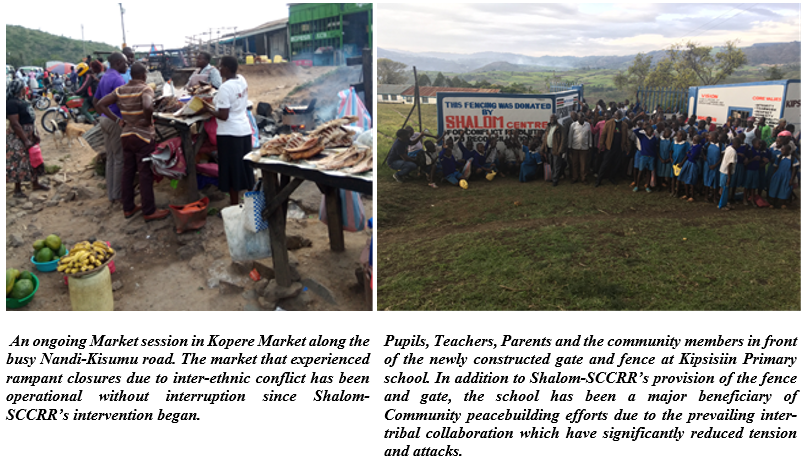
Working towards Sustainability of Peacebuilding
Having capacity built the community opinion shapers for over 5 years, it has become imperative that there is need for greater empowerment of more local leaders so that they can obtain peacebuilding expertise almost to the level of Shalom team. In response to this need, Shalom-SCCRR is further training and engaging in peacebuilding simulation exercises to twelve (12) Community Facilitators (CFs), 2 Group Animators and 4 Community Mediators drawn from both Luo and Nandi Communities.
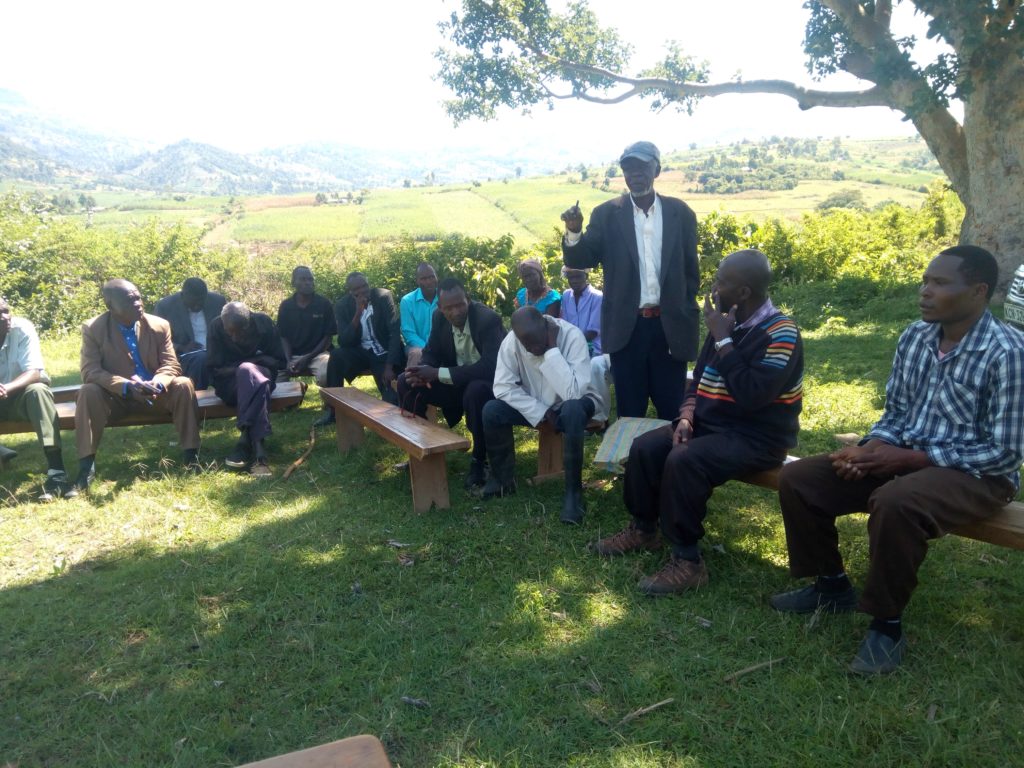
Shalom is closely monitoring the progress of these community resource persons while constantly engaging them practically in community mobilization exercises, conducting inter-ethnic reconciliation and problem solving workshops where mechanisms for peace and joint development initiatives are agreed upon. In the year 2021 alone, the Community resource persons were able to conduct twenty-seven (27) conflict intervention forums in twenty-seven (27) villages located along the conflict hotspots of Kisumu-Nandi border.
By:
Godfrey Okoth MA, Senior Project Officer
Arthur Magero MA, Project Officer; Kisumu-Nandi Borderline Project
CONNECT WITH SHALOM-SCCRR

